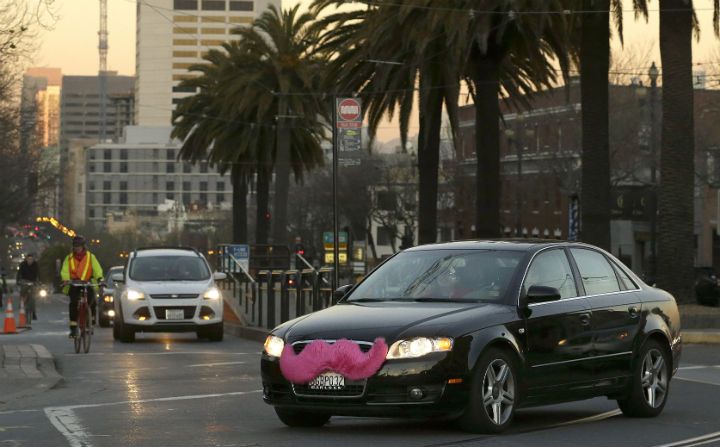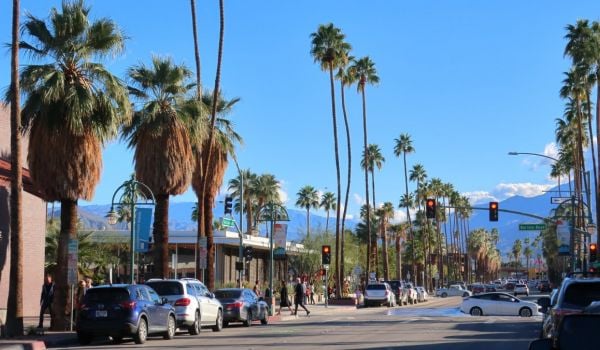Ah, the PUC. Such a powerful entity, so undeservedly little-known on the national stage.
State public utilities commissions — the PUCs of which I speak — have been in the news lately, even if mentions of these regulatory agencies are often buried in third and fourth paragraphs of stories about ongoing battles involving the taxi industry and new transportation companies like Uber and Lyft. PUCs, though, are shaping how innovations in transportation play out across the U.S.
California’s Public Utilities Commission started it all back in August when, while signing off on these new models, it invented a brand new category to contain them. Colorado’s PUC has been wrestling with what to do on the topic. Then there’s Pittsburgh, where Mayor Bill Peduto has been resisting the Pennsylvania PUC’s efforts to put the brakes on ride share, telling state regulators they need to change their rules to allow these companies to operate.
To better understand the nature of public utilities commissions, I spoke with Janice Beecher, a political scientist and the director of perhaps ground zero for the study of PUCs: The Institute of Public Utilities at Michigan State University.
Next City: What do you make of the situation in Pittsburgh, where the mayor is pushing back against his state utilities commission’s insistence that he crack down on ride share?
Janice Beecher: It’s interesting. The criteria for a commission’s utility regulation is, to me, relatively specific. We usually think of it in terms of, “what’s the market failure?” Whenever we regulate anything — food, the environment, safety, whatever — we’re saying that the market is left with no devices that are adequate for our social concerns. Some things we don’t regulate, like cell phones now, is because we say, “Well, you know, people have choices.” Some of the original market-failure questions with phone services have kind of dissipated over the years. And regulating traditional landlines is up for debate in most of the states as well.
It’s funny that this should come up in transportation, because a lot of what used to be regulated as transportation monopolies are much less regulated. A lot of [states] unwound that. Regulating [transportation] doesn’t fall into what we now think of as those core utilities. [According to the Institute of Public Utilities’s Database of Commission Jurisdiction, only about a dozen state PUCs now regulate for-hire transportation like taxicabs. – Ed.]
Early on in our history, we regulated a lot of aspects of transportation, starting with railroads and then, ultimately, common carrier vehicles like trucks and movers. But a lot of that has been effectively deregulated. Same with airlines, by the way. We used to regulate airline prices. Now they’re still regulated for safety, obviously, but we let the market set airline prices.
NC: Why did that happen?
Beecher: There was just a sense that the market was going to be sufficiently competitive that providers would behave themselves. The way to think about it is that something regulates: Either the marketplace regulates behavior or government has to. There was a famous case called Market Street Railway that involved old trolley cars. The Supreme Court was pretty clear that, look, we can’t protect you guys from economic forces. We’ve got the same issues today. We’ve got some interesting questions in energy, where we’ve got potential for providing services and products like home-generated electricity. How do we deal with that?
That’s a little different, though. Electricity, water systems, natural gas systems — those still have those fundamental big capital investment, big networks to work. The rationale for economic regulation tends to center on private investment in this capital-intensive infrastructure. Where it gets complicated is, what’s the benefit of maintaining that network? There are benefits of you and I being customers on the same system. By maintaining the network, we get economies, we get more reliability, we get coordination and integration benefits. You can see the problem if all of the sudden some people drop off. Say a whole bunch of people want to put solar panels on their rooftops, but they don’t want to go completely off the grid. How do we allocate those costs now? Do the costs go up so much that they wipe out the benefit for everybody?
NC: Is the thinking that it’s okay, then, for state regulators to take into account the possible negative effects of breaking up a network, in the sense that a railroad isn’t worth much if it’s split into bits and pieces?
Beecher: I think so, because the regulator has a broad legislative mandate. We have these words embedded in our regulatory authorities: “Regulation in the public interest.” Ah ha. What’s in the public interest here? Is it in the public interest to maintain the network and therefore capture the economic and social benefits of that network? I do a lot of work in water. It’s pretty much a vertical monopoly for practical purposes. On the east side of the country, we could dig wells and self-supply. Would it end up being best for the environment? Would it be better for my safety and health? And here’s the big kicker: fire protection. By maintaining that network, I’m getting all these multiple network benefits.
I’m trying to get regulators to think hard about that stuff. Yes, we could all go get solar panels and fuel cells and home generators that run on diesel fuel. I’m not against some self-supply. I’m working on a solar keyboard as we talk. But the idea of seeing us all networked for the foreseeable future — it has a lot of advantages.
NC: Are existing industry interests [as in, the taxicab industry] well heard at these state PUCs?
Beecher: They are well heard. The thing with public utility regulation is that it’s highly specialized. [PUCs] provide a function that we think of as being quasi-legislative, quasi-administrative and quasi-judicial. It’s a fairly well-defined group of constituents, in terms of the regulated sectors. And regulation in many respect reacts to their requests, like when a regulated utility wants to change its rates. They have to come forward and ask for it. It’s not like the commission goes looking to help them.
This interview has been condensed and edited for clarity.

Nancy Scola is a Washington, DC-based journalist whose work tends to focus on the intersections of technology, politics, and public policy. Shortly after returning from Havana she started as a tech reporter at POLITICO.
















